Have you ever found yourself lost in the endless possibilities of GitHub, scouring through countless repositories for inspiration and ideas? I know I have. GitHub is a treasure trove of information, a hub for developers and creators to share their work with the world.
But as I've spent more and more time on GitHub, I've noticed a trend. Despite having amazing projects, many developers neglect their GitHub READMEs. This can leave potential users and collaborators feeling confused and frustrated. It's like being handed a treasure map without any directions on how to read it.
In this blog, we'll explore the importance of the GitHub README, thoughts from the community, my take and how it can make or break your project's success. We'll dive into the elements of a great README, and show you how to make your project shine. So join me on this journey through the vast world of GitHub, and let's make sure your project doesn't get lost in the shuffle.
The Pulse of Our Community: Views and Opinions

Created with DALL·E
So I shared a tweet in our little community to ask what folks thought about GitHub Readme.
The responses were...
Himanshu, Himanshu pointed out that creating a GitHub readme can be a seamless way to showcase your impressive skills, which can have a positive impact on your active contributor graph.
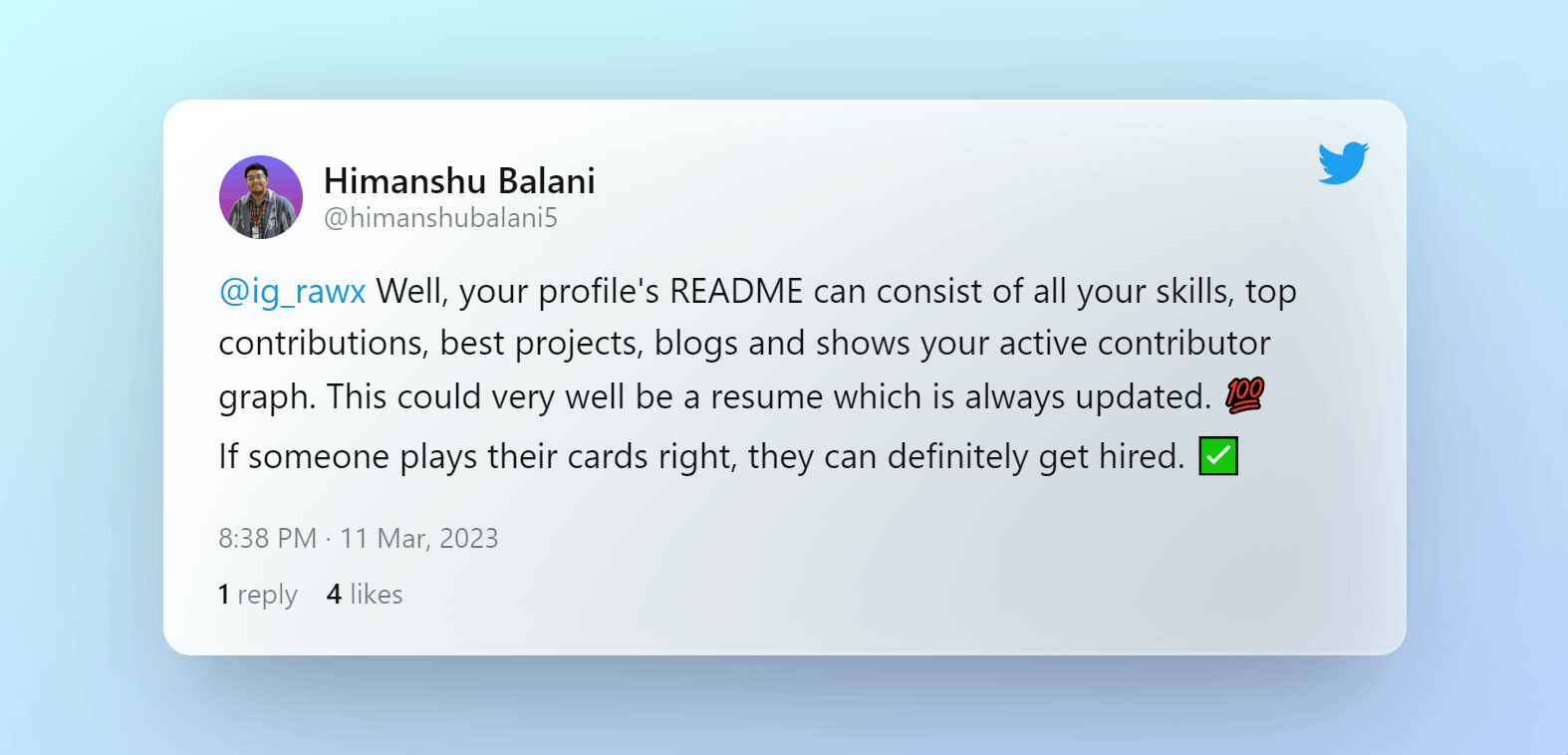
Manaswi, noted that a familiar phrase we often hear about various things is particularly applicable to the GitHub readme feature, as it can be an effective tool to highlight one's abilities.
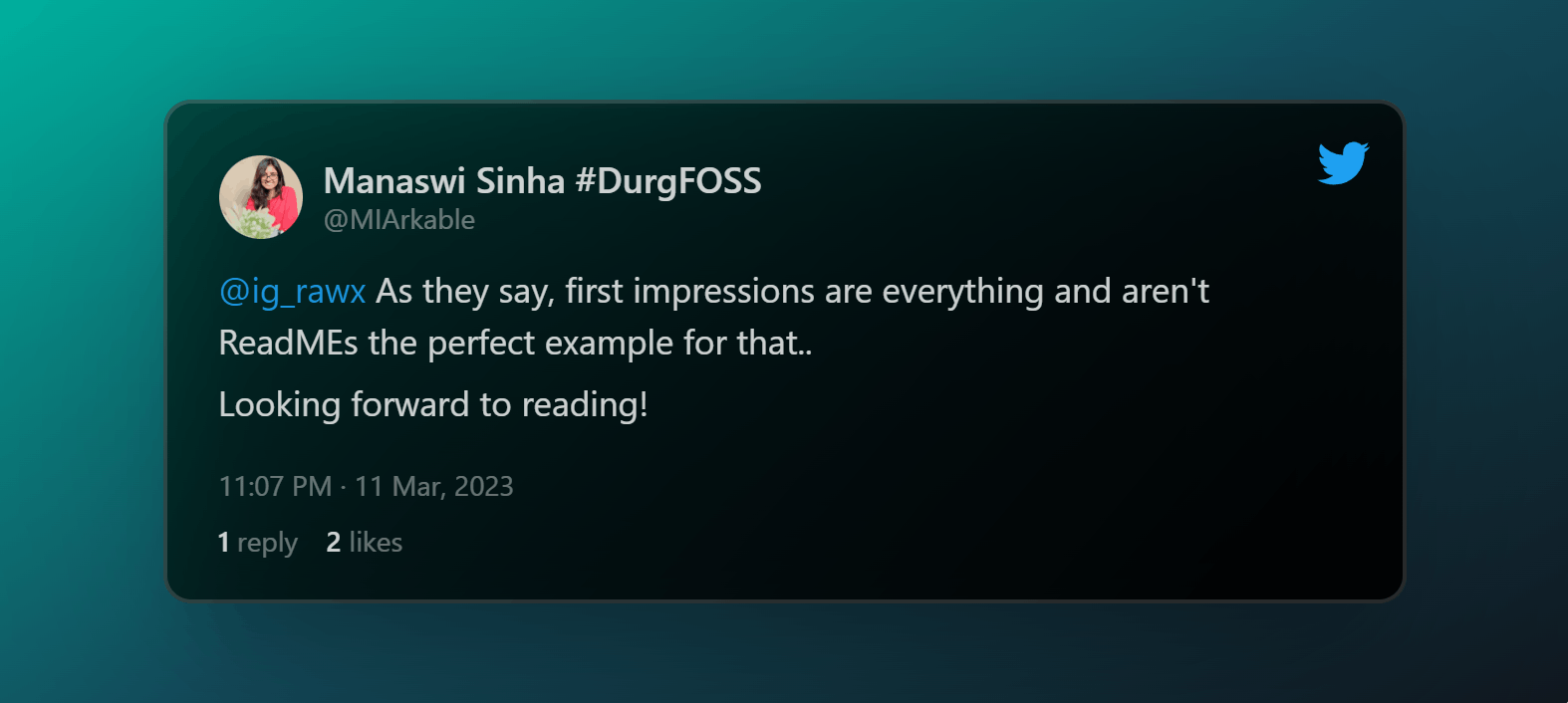
Barsha shared her perspective on the hiring process, emphasizing that while it is a comprehensive process, having a well-crafted GitHub readme can always be advantageous in making a strong impression.
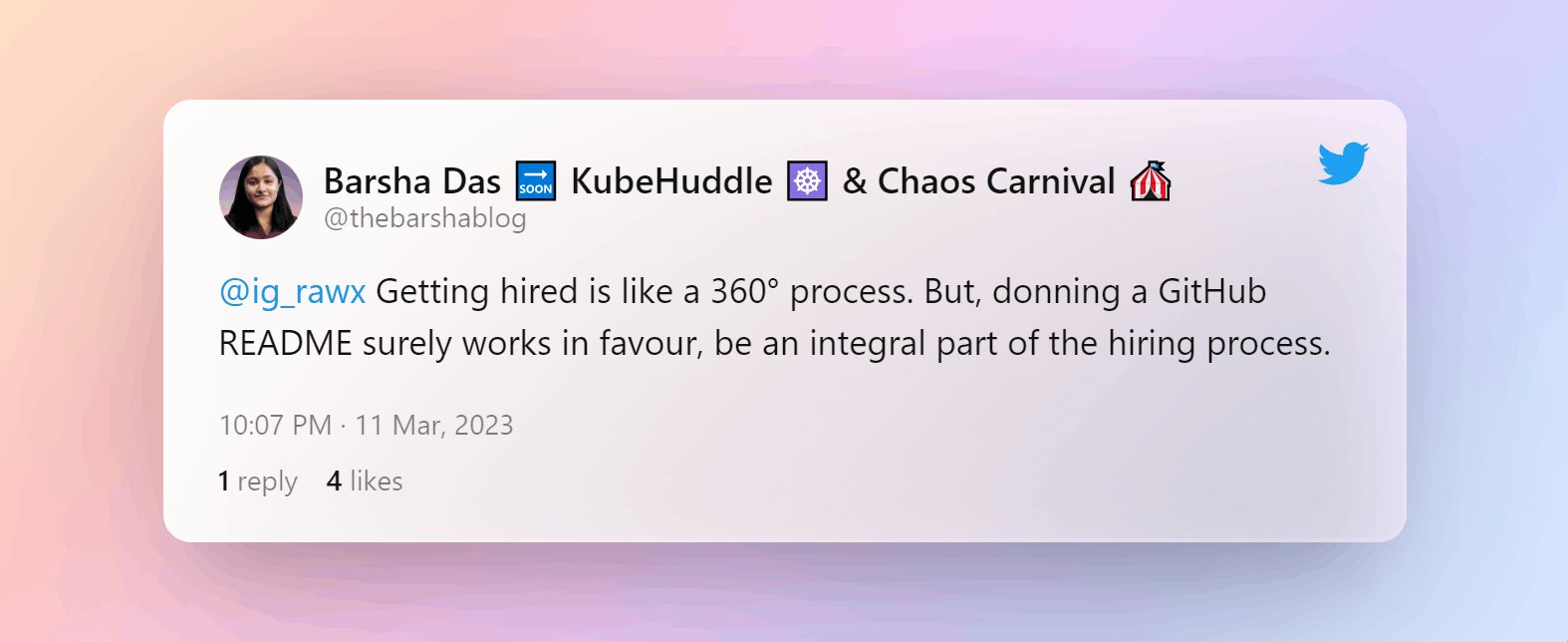
Shivam seems to share the same sentiment and highlights the crucial role that a well-crafted README can play in making a project stand out on GitHub.
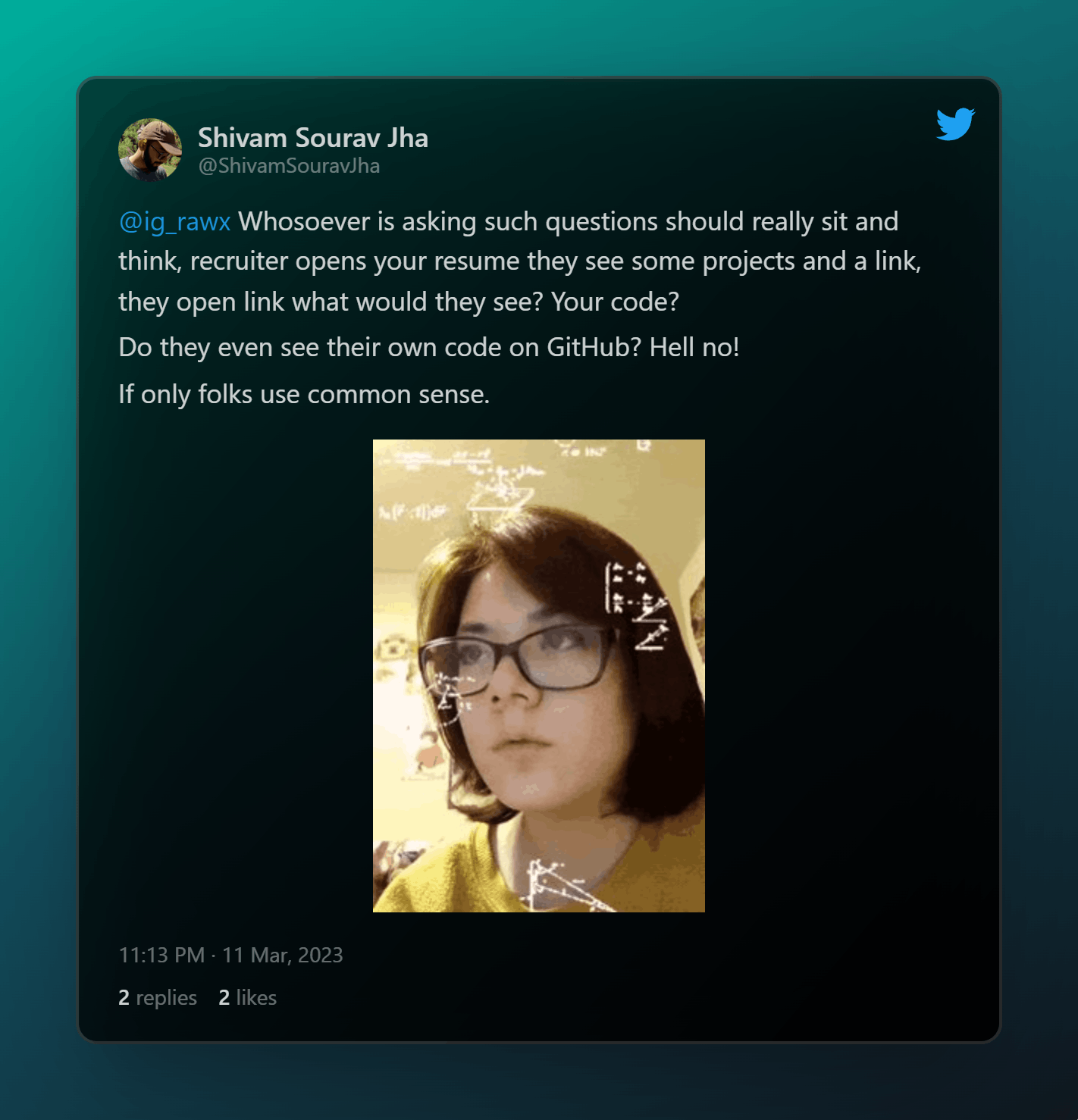
Elements for a Perfect Readme
Project title: A clear and descriptive title that accurately reflects the purpose of the project.
Project description: A brief overview of what the project does, why it exists, and how it can be used.
Installation instructions: Step-by-step instructions on how to install and set up the project.

Usage instructions: Detailed instructions on how to use the project, including any relevant command-line arguments, flags, or options.

Contributing guidelines: Guidelines for contributing to the project, including information on how to submit bug reports, feature requests, and code contributions.
License: A clear statement of the project's license, including any relevant terms and conditions

.
Contact information: Contact information for the project maintainers, including email addresses, social media handles, or links to a discussion forum or mailing list.
Acknowledgments: A list of any individuals or organizations that contributed to the project, along with a brief description of their contributions.
If you want to explore more you should check out this resource by FreeCodeCamp on GitHub Readme <3
How I define "GitHub Readme"
Your GitHub profile is more than just a place to store your code. It's a digital resume that can showcase your skills and help you stand out to potential employers. With GitHub Readme, you're already a step above to explore and collaborate more with amazing folks on GitHub
I have noticed that many blogs emphasize the importance of having a well-written README file, but I would like to add the point that is often overlooked - how a README can help you secure a better job. For instance, let's say you have worked on a machine learning model and utilized a specific software for your backend. If you happen to interview with the same company that provides the software, including details about how you used it and how it improved your work in your README can make a positive impression on the hiring manager. This could demonstrate that you are already familiar with their product, potentially making you a more attractive candidate for the job.
Ending thoughts
I wrote this blog based on my observations of projects on GitHub, where I noticed that some projects lacked a well-written README file. While it's important to prioritize your main project, it's also crucial to recognize the significance of a comprehensive README file. This document provides crucial information to users and potential collaborators about the project's purpose, features, and usage. Thus, a well-crafted README file can greatly benefit the project's success and should not be overlooked.
Special Announcement
My team and I are organizing OpIn Hacks this summer, which will take place from May 5th to 7th. You can find more information about the event on our website, opinhacks.co. This event is more than just a typical hackathon because, in addition to working on projects, our focus is on creating internship and job opportunities within the region. We hope to provide a platform where participants can not only showcase their skills but also connect with potential employers and collaborators.
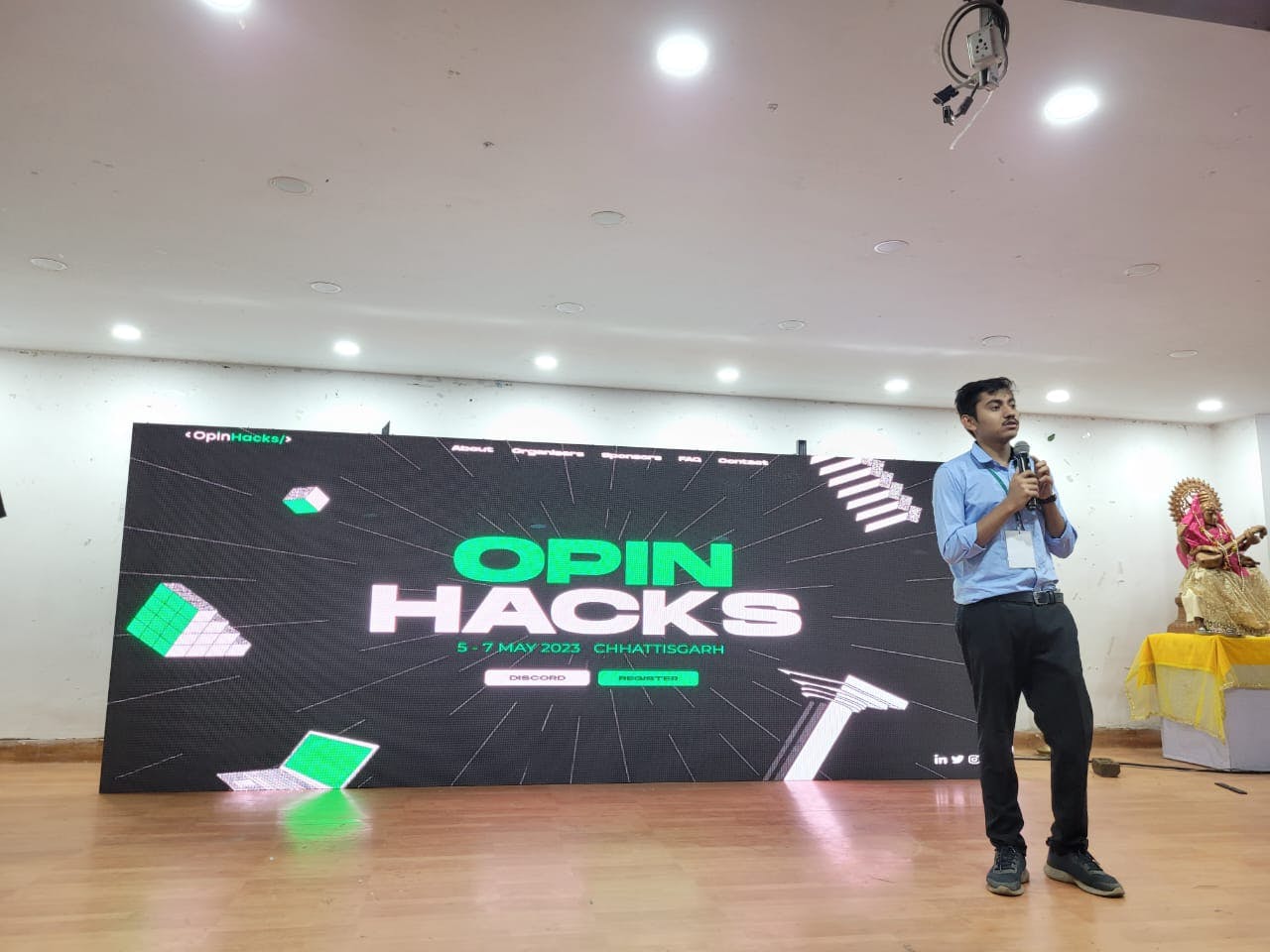
Let's Connect over Twitter|Linkedln|Instagram
